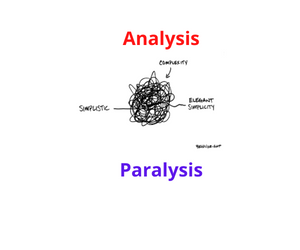As a kid, I wondered why Chrysler had a van and Dodge had the same van even though they were in the same group. In recent years, car makers have got a whole lot smarter, with a revolution started by a Spaniard, Ignaki Lopez at VW, who kicked off an industrialisation trend. Far more often than ought ot be the case, banks have duplication and redundancy. Even in these times of austerity, sheer bloody mindedness is rife as a tale from a recent lunch with a good old friend in the front-office trading systems market told me.
My friend’s firm had been asked by the Private Banking area of a major European banking group to install his software to connect the private bank’s execution desk directly to brokers and banks for futures and options trading. Until then, the private bank had passed on 100% of its orders to its own Investment Bank, who already had all this same infrastructure that the Private Bank now has. Good for my friend and his sales targets.
But, where is the benefit? There is no more volume, but now more overhead in terms of systems to maintain and licenses to pay for. This made no sense to me, so I asked what the driver was. Simple, said my friend. In the historical set-up, the private bankers had to give the investment bank half the commission.
So, the result of the exercise to get their own technology is that now they, the private bank, kept 100% of the commission and can proverbially stick two fingers up at the greedy Investment Bankers. Years ago, in days at Goldman Sachs, we had the same little local uprising in Zurich, with the locals deciding they did not want to execute 100% of their FX with Goldman’s FX desk in J Aron. Stopping that little Helvetic muscle flexing was a matter of a two minute conversation with one of the partners. The head of equities and the Swiss bank told the Swiss bankers that they must do 100% of their FX with the IB’s FX desk in J Aron. End of discussion. Why, simply because if the execution was in-house there was more for all the partners and the partners expected that their fellow partners would play nicely in the snakesandpit.
Now in the meantime, there are lots more regulations, “best execution” is essential and various custodians have found themselves in the courts for taking the proverbial on the pricing (see the excellent report on the TABB Forum: Is the FX Custody Business Nearing Extinction?), but there are smarter ways to keep traders honest about inter-company pricing than duplicating things.
The net result of this move by the private bank? Quite simply, the shareholders are worse off. External costs will go up for the Private Bank and revenues will go down for the Investment Bank. Now the PB’s revenues will go up a bit, so maybe internally theaccounting treatment might make the PB folk look clever, but that is only an optical illusion.
Lessons Learned: To be fair, the internecine warfare happens inside a division too; equities don’t trust FX to price and trade away, so fixed income do their equity trades away too. Goldman Sachs had it right all those years ago. Diktat and ensuring internal discipline is the order of the day. Yes, all the rules have changed. Well management and the COO’s need to earn their crust; ruthlessly stamp out duplication and any order flow leakage, in other words desks playing away when they could source internally.
A personal request: The book of the Blog is in the works. Your support would be appreciated on two fronts:
- Please subscribe, if you don’t already.
- Please share this with a friend or two and ask them to subscribe too.
If the comments are wide of the mark and not offering anything of use, please comment or make contact directly via E-Mail.
Share on:



